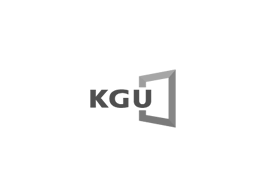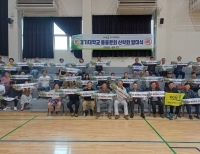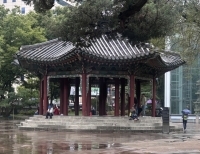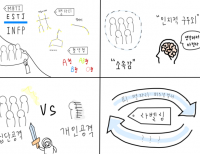With the beginning of 2018 coming to an end, the grace period for the pre-operation of the Jeon-an law is also ending, and the issue of how to make an effective Jeon-an law has become a hot potato. The Jeon-an law refers to a test of certification by a national certification institution for product quality. Simply put, it means that you need to have a scientific examination of your products to ensure that your products are safe. Once the product is deemed safe, the ‘KC’ mark is attached in accordance with the Jeon-an law. Why did the whole idea become an issue?
The law, first proposed by the Ministry of Trade and Industry (MTI), at the end of 2015, was subject to a grace period of about one year due to opposition from small businesses. Nevertheless the bill, which was supposed to be revised on December 22, 2017, has become a hot topic of conversation since the passage of the bill within this year is uncertain due to the delay of the amendment. The main reason for the existence of the law is consumer safety. However, this law is not for consumers and small businessmen. There are two main causes of the confusion surrounding this law, so let’s focus our analysis on the two causes.
First, it is realistically inadequate with regard to the market logic. ‘Daily supplies’, that is products that can affect the human body, directly or indirectly, including accessories, all clothing, sneakers, and even cotton swabs are subject to the law. Such inclusion can be problematic due to certification costs, time frame, and other issues, or may cause an increase in the price of such products. For example, the 3,000 won slippers could go up to 10,000 won.
Second, the proposed certification system is nearly impossible to apply to low-cost daily supplies, especially. It is because it can cost a lot of money to check the product for safety and to test its stability when manufacturing or importing socks or children’s toys that cost a few thousand won. Although the intent of the law is to protect consumers, if the unrevised legislation is passed, the cheap and good products that ordinary people have enjoyed so far will disappear.
Regarding the Jeon-an law, Pharos reporters conducted a short interview with the students at Kyonggi University to discuss the method. According to the results, many students did not know about the law, and most of the students who knew about the law said they were in favor of a revision. Kim, who is a sophomore, expressed his concern saying, “It is good to ensure the safety of products according to the law, but the price hikes will make people and small businesses feel burdened. The law also makes not only overseas direct purchases illegal but also sales of items on local Internet shopping sites such as social commerce platforms and malls, which seems to be bad for people’s livelihood so” Thus, he supports the revision of the law.
Then what is the biggest reason for the enforcement of the law? The reason is the security of consumers. At the center of it, there was the “Oxy incident” that took place in 2016. After the humidifier sterilizer scandal, there was a move to increase consumer’s safety management. Eventually, the problematic product caused an expansion of KC certification from electrical appliances to daily supplies. However, if the law is enforced, will it ensure the safety of consumers?
Opponents of this law are skeptical about this. They insisted that the germicide had been certified, but the incident occurred regardless. The same went for the ‘Galaxy Note 7 explosion’ case. The batteries of the Galaxy Note 7 were certified before the release. However, the certification was discontinued in an official announcement two months after the explosion. Afterwards, experts tried to find the cause of the explosion exactly, but they could not figure it out. Though what was revealed after the incident was that Samsung produced the battery edges without them even being properly designed. Therefore, it is presumed that this was due to an early launch date and excessive battery capacity because of competitive pressure. In the end, assuming the certified battery was the main cause of the accident, the credibility of the certification is diminished.
The subsequent deaths caused by the humidifier sterilizers were especially terrifying for consumers. Humidifier sterilizer are used as a additive to humidifier water all the time. Product guides described them as harmless to the human body, yet there were 239 deaths and 1,288 serious lung disease patients. Most of the victims were mothers and infants. After the incident, the exposed facts were shocking. Korea was the only country to release a product called a humidifier sterilizer. PHMG and PGH, which were used in the product, are chemicals used in swimming pool cleaning and water tank cleaning. Without fully understanding how the chemicals affect the human body, the certification authority put KC marks on them. To conclude, the producers and sellers were under fire when the incident erupted, but eventually no reasonable liability was assigned to for the certification authority that granted KC certification. This is a situation in which it is questionable whether the certification authority is appropriately verifying products’ safety. Also, there are worries about the lack of rechecking and ongoing management after the first certification. The main concern of this controversial law is the high cost of certification. To lower the cost of certification, more certification institutions are needed. There also should be strict criteria for inspection because it is connected with the original intention, consumers’ safety.
The revision that exempts KC mark certification for several household items has now passed into law and that has relieved small business owners’ worries. During the six-month grace period, though, the government will have to sound small businessmen and consumers out on the Jeon-an law and come up with substantial alternatives to meet all of them.
69th Reporter WOO HEESO heeso0303@naver.com
70th Cub Reporter KIM YOONSEO charin1228@naver.com
 Freedom Given to Youth: An Opportunity for Choice or a Burden of Constraint?
“Are we truly free today?” Classical literature is far more than time-honored stories. It offers profound insights into human nature and society that transcend time, remaining a valuable resource for examining the challenges our world faces today. This article will draw on George Orwell’s 1984 and Charles Dickens’ Oliver Twist to explore the contemporary issues of youth housing and the emergence of a surveillance society ...
Freedom Given to Youth: An Opportunity for Choice or a Burden of Constraint?
“Are we truly free today?” Classical literature is far more than time-honored stories. It offers profound insights into human nature and society that transcend time, remaining a valuable resource for examining the challenges our world faces today. This article will draw on George Orwell’s 1984 and Charles Dickens’ Oliver Twist to explore the contemporary issues of youth housing and the emergence of a surveillance society ...

 [단신] 산악회, 본교 동문의 버팀목이 될 수 있도록
[단신] 산악회, 본교 동문의 버팀목이 될 수 있도록
 [사회메인] 노인 인구 1,000만 시대, 준비 없는 사회가 불안해
[사회메인] 노인 인구 1,000만 시대, 준비 없는 사회가 불안해
 [네컷만화] 라벨링 문화
[네컷만화] 라벨링 문화
 [진리터] 결국 우리 모두 돌아볼 것이니
[진리터] 결국 우리 모두 돌아볼 것이니

 목록
목록










